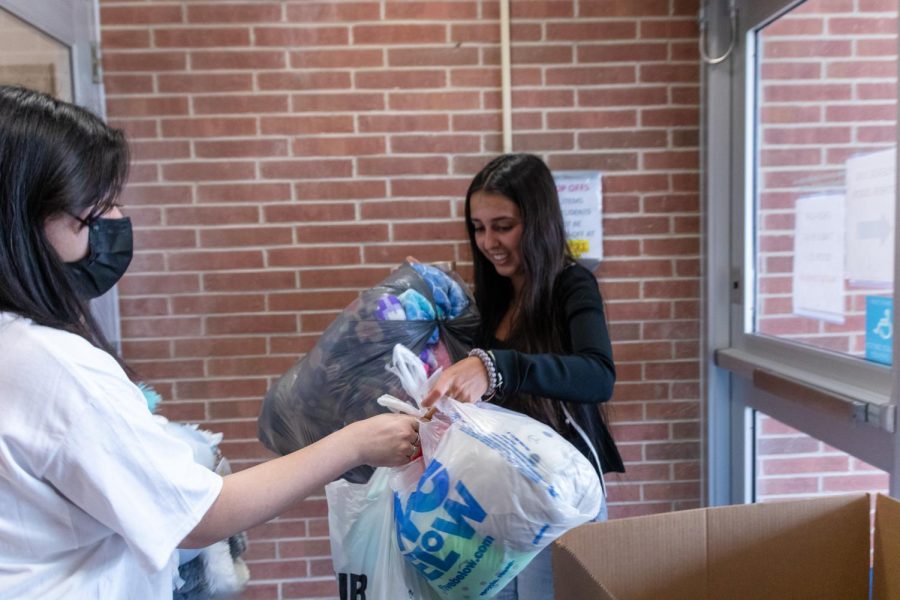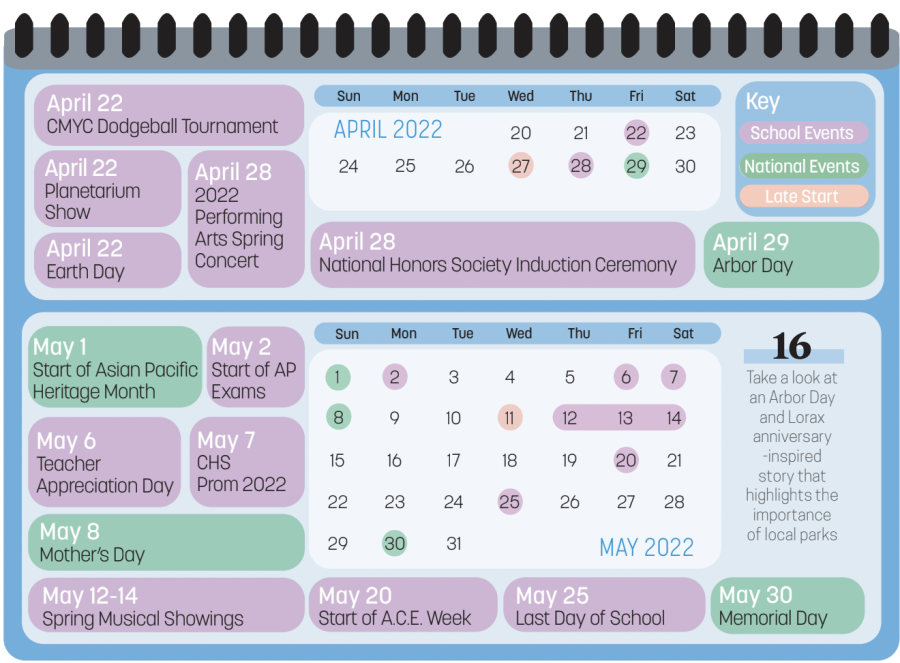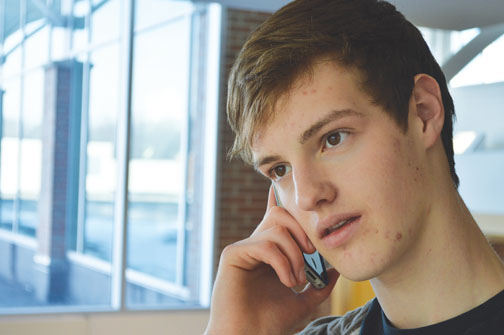The days of hearing, “Please turn off and stow away your electronics; we will be taking off shortly” are soon to be over. According to CNN, the Federal Aviation Administration (FAA) is now allowing airplane travelers to use their electronic devices throughout their entire flight and not just above 10,000 feet. Talking on a cell phone is still banned, but passengers will now be able to use their laptops, tablets, e-readers and cell phones throughout the flight.

Sophomore Joe Philleo, who travels to Florida by flight regularly, said these regulations will make his flight much more enjoyable and convenient.
“It’s frustrating when you’re in the middle of something and you have to turn off your electronics,” he said. “If the old rules didn’t affect my security and safety anymore, then I find them outdated.”
Clinton Oster, Indiana University Professor Emeritus at the School of Public and Environmental Affairs (SPEA), specializes in aviation safety and regulation. He said the FAA has taken so long to pass these standards because it has always believed radio signals from the devices could interfere with an aircraft’s communications, navigation and other systems.
“The concern was that even a small hiccup in terms of an electronic interference during landing could result in an accident so FAA has been very, very cautious,” Oster said.
Oster said that each airline will be checked to make sure it can tolerate the interference of the electronic radio signals before allowing these regulations to pass through. Several airlines, such as Delta Air Lines and JetBlue, are in the checking process with more airlines to be cleared soon.
Philleo said lifting these restrictions makes him more inclined to watch movies and try e-books, now that he can watch a movie in its entirety and read e-books throughout the entire flight.
“I enjoy watching movies, and a lot of flights are just the right amount of time to watch movies. Now with the extra 20 minutes, these new regulations make my flight much more enjoyable,” he said.
Oster said that companies like Amazon are really pushing for these regulations because it is a chance for them to promote their e-readers.
“You’ve always been able to read a conventional book below 10,000 feet. Now you can read a Kindle below 10,000 feet,” he said.
Junior Savannah Federspiel, who plans to travel to California next summer, likes to listen to her iPod during flights and said this is a welcome change, though she does still worry about the safety.
“I was always kind of annoyed when the flight attendant would say, ‘turn off your electronics’ because I’ve (flown) so many times, and I hear it over and over again,” she said. “People will be more concerned with their electronics so they’ll just ignore (the flight attendants) when they’re talking about the rules.”
Oster said he agrees with Federspiel.
Nevertheless, Oster said he still believes the lifted restrictions are a welcome change for many passengers who never saw their devices as a threat in the first place.

Philleo also expressed his skepticism as to whether people would remain focused during an emergency situation.
“I personally just found it a bit difficult to believe that a cell phone or a laptop could interfere with the signaling of a plane and result in a serious risk to safety. Ultimately, I took their word for it since they are experts,” he said. “But now, I would find the flight much more enjoyable instead of sitting there for 20 minutes with nothing to do.”
For more information on the FAA regulations, click here.


































![British royalty are American celebrities [opinion]](https://hilite.org/wp-content/uploads/2024/03/Screenshot-2024-03-24-1.44.57-PM.png)


















![Review: “Suits” is a perfect blend of legal drama and humor [MUSE]](https://hilite.org/wp-content/uploads/2024/04/unnamed-1.png)
![Chelsea Meng on her instagram-run bracelet shop [Biz Buzz]](https://hilite.org/wp-content/uploads/2024/04/IMG_2446-1200x838.jpg)
![Review: Quiet on Set: The Dark Side of Kids TV is the long awaited exposé of pedophilia within the children’s entertainment industry [MUSE]](https://hilite.org/wp-content/uploads/2024/04/unnamed.jpg)
![Review: “The Iron Claw” cannot get enough praise [MUSE]](https://hilite.org/wp-content/uploads/2024/04/unnamed.png)
![Review: “The Bear” sets an unbelievably high bar for future comedy shows [MUSE]](https://hilite.org/wp-content/uploads/2024/03/unnamed.png)
![Review in Print: Maripaz Villar brings a delightfully unique style to the world of WEBTOON [MUSE]](https://hilite.org/wp-content/uploads/2023/12/maripazcover-1200x960.jpg)
![Review: “The Sword of Kaigen” is a masterpiece [MUSE]](https://hilite.org/wp-content/uploads/2023/11/Screenshot-2023-11-26-201051.png)
![Review: Gateron Oil Kings, great linear switches, okay price [MUSE]](https://hilite.org/wp-content/uploads/2023/11/Screenshot-2023-11-26-200553.png)
![Review: “A Haunting in Venice” is a significant improvement from other Agatha Christie adaptations [MUSE]](https://hilite.org/wp-content/uploads/2023/11/e7ee2938a6d422669771bce6d8088521.jpg)
![Review: A Thanksgiving story from elementary school, still just as interesting [MUSE]](https://hilite.org/wp-content/uploads/2023/11/Screenshot-2023-11-26-195514-987x1200.png)
![Review: When I Fly Towards You, cute, uplifting youth drama [MUSE]](https://hilite.org/wp-content/uploads/2023/09/When-I-Fly-Towards-You-Chinese-drama.png)
![Postcards from Muse: Hawaii Travel Diary [MUSE]](https://hilite.org/wp-content/uploads/2023/09/My-project-1-1200x1200.jpg)
![Review: Ladybug & Cat Noir: The Movie, departure from original show [MUSE]](https://hilite.org/wp-content/uploads/2023/09/Ladybug__Cat_Noir_-_The_Movie_poster.jpg)
![Review in Print: Hidden Love is the cute, uplifting drama everyone needs [MUSE]](https://hilite.org/wp-content/uploads/2023/09/hiddenlovecover-e1693597208225-1030x1200.png)
![Review in Print: Heartstopper is the heartwarming queer romance we all need [MUSE]](https://hilite.org/wp-content/uploads/2023/08/museheartstoppercover-1200x654.png)






















![Review: Ladybug & Cat Noir: The Movie, departure from original show [MUSE]](https://hilite.org/wp-content/uploads/2023/09/Ladybug__Cat_Noir_-_The_Movie_poster-221x300.jpg)

![Review: Next in Fashion season two survives changes, becomes a valuable pop culture artifact [MUSE]](https://hilite.org/wp-content/uploads/2023/03/Screen-Shot-2023-03-09-at-11.05.05-AM-300x214.png)
![Review: Is The Stormlight Archive worth it? [MUSE]](https://hilite.org/wp-content/uploads/2023/10/unnamed-1-184x300.png)




![Seniors Jillian Rang and Athul Ramkumar practice their presentation at the DECA state competition on March 5, 2024. Arya Patel, DECA paper head and junior, said, As they [students] begin to make their final preparations, its important to remember that making it to this point is an incredible achievement.](https://hilite.org/wp-content/uploads/2024/04/IMG_8285-1200x800.jpg)
